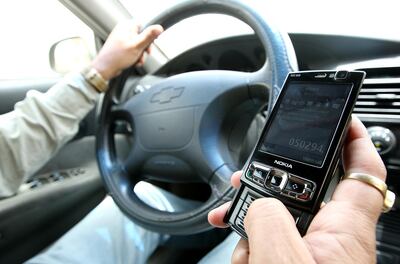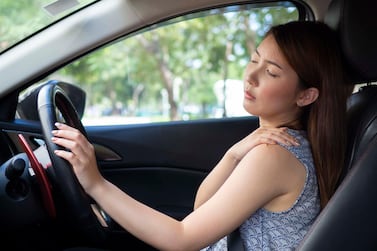For as long as I can remember, men have told me that they are, without doubt, better drivers than women. The reason they want to debate this topic with me in particular is because I – a female – have worked as a motor-racing instructor, stunt driver, vehicle product trainer and automotive journalist since I left the British military. I spent my younger years in the transport squadron of the Royal Air Force driving everything from motorbikes to buses.
Despite being a confident female driver, however, I spent years questioning my ability behind the wheel and often wonder if this is because I’ve heard more than my fair share of jokes and stories about bad women drivers. Everyone has their opinion on the matter and the debate never seems to go away, but new evidence shows who actually reigns supreme – and it’s not as clear-cut as we would like it to be.
The official ruling is that, statistically, almost without exception, women are better drivers. Price comparison site Confused.com conducted a study to determine which sex is the better driver by analysing statistics on insurance claims, motoring offences and driving test results. Similarly, Johns Hopkins University in America and Brake, the worldwide road safety charity, also looked at national statistics across the globe. Each study was broken down into segments and this is what they found.
The driving test
In the past few years, the number of women taking their driving test has increased, so much so that, in some countries, including the United States and the UK, more females than males hold provisional permits. Yet, according to the American Federal Highway Administration, men made up 76 per cent of drivers on the road only a few decades ago. That said, women take longer to pass their test and on average are 24 per cent more likely to fail first time.
Kilometres on the road
It's a common misconception that men spend more time in the car than women. It is true that men are more likely to rack up the kilometres, as they are more likely to take the wheel on long journeys. However, when it comes to time in the car, women are more likely to use their vehicle to take the children to school, collect the groceries, run errands and more. This means, in the UK, the average annual mileage for male drivers is only 1 per cent more than that of their female counterparts.
Car insurance claims
One factor that can affect your car insurance premium is your claims history and, for men, this is where they start to fall short. According to the Confused.com study, of all the insurance claims submitted in 2019, almost 70 per cent were put in by men. Part of the reason is that men are 89 per cent more likely to have a high-speed crash on the roads, meaning the chance of having to pay out to fix or replace their vehicle is far greater.
Women, on the other hand, are statistically more likely to be involved in low-speed, low-impact accidents. These tend to occur in confined spaces such as car parks, in slow-moving heavy traffic or when trying to manoeuvre around stationary vehicles during the school drop-off. Small 'fender benders' are less likely to be reported to the insurance company and, therefore, go unregistered.
Motoring offences
Of the more than half a million motoring offences recorded in England in 2018, a staggering 79 per cent of them were committed by men, almost four times as many as by women. In India, an average of 321 people die every day in road traffic accidents where the driver was male. In fact, male drivers outnumber women in most offence categories around the world. According to Oxford University research tank Our World in Data, men outnumber women more than 3:1 for speeding offences that involve travelling at more than 100 kilometres per hour, although women tend to be punished more often for speeding in built-up community areas, where a lower speed limit is enforced.
Bad habits

You'd think the sexes would be pretty equal when it comes to bad habits while driving, but from smoking at the wheel to running a red light, it's men who are more likely to commit the crime. If you see someone driving without a seat belt, it's 50 per cent more likely to be a man than a woman.
Disrespectful behaviour
A Queensland University of Technology and Queensland University study that surveyed 447 drivers found that men are more likely to undertake, tailgate, not indicate, lane hog, fail to give way and, most worryingly, watch videos on a mobile phone while driving. Although the study on distracted driving found that female drivers are more likely than men to use mobile phones while on the road.
My personal experience
So, while on paper it certainly looks as though women are the superior drivers, is it really that simple? Having spent years teaching defensive driving courses to both men and women, I can see, anecdotally, that there are some clear differences in styles of driving between men and women.
In general, women tend to be overly concerned about the consequences of driving fast, and can get themselves into trouble by being overly cautious on motorways, yet easily distracted at lower speeds in built-up areas. Men, on the other hand, are less likely to think about the ‘what ifs’. As a result, their inner alpha male can emerge and they are more likely to show dominance by driving in a more aggressive way.
At the end of the day, everyone could do with improving their driving skills, whether by better obeying speed limits or paying more attention. Realistically, the debate shouldn't be about gender at all: the question should be, are you doing everything you can to keep yourself and others around you safe on the roads?







